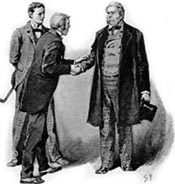We carry some
imformations about
Amakusa.
We three have lived there before so we are interested in there so much. It's a so beautiful city and has many nice places to visit. Of course it's a one of place to live comfortably. Especially in those things, we introduce some topics below.
 Then, our recommendations...
Then, our recommendations...
1. Amakusa Hondo festival. The festival takes place in August every year. It has Haiya which is traditional Amakusa's dance and main event,
fireworks(7,000 fireworks!!!) We can see them beside sea where display them so their size are so huge. Impressive!! It's a so wonderful festival. These are why many people visit there the season every year.
You also should visit in the season at least once.
With your best partner. (It will be the best romantic night...)
2. Amakusa' s cable TV .
s cable TV . Amakusa has a famous person in announcer world. The person is called
"Shino chan" by many people. She is 102 years-old now. She works as announcer in Amakusa cable TV. She is very popular and has broadcasted many TV programs (Even a nation-wide TV!!)
We haven't met her yet but want to meet and see her nice smiles someday...
3. Dialect in Amakusa. We talk about
Amakusa’s dialog in this paragraph.

Amakusa dialect is classified as the dialect of east of Kyushu. So it’s influenced by the dialog of Nagasaki, Kumamoto and Kagosima. On the other hand, it also had influence by Chinese, Portuguese and Dutch. Because it locates near by west Asia and Dejima in Nagasaki.
First of all, we talk about words influenced by foreign language.
People who live in Amakusa say glass vidro (in Japaneseガラス). But they call just glasswork not glass. It’s from Portuguese. SYABON(soap) and BOBURA(pumpkin) was from Westerners. They have also words ‘OBOJI’ meaning brother and father and ‘CHINGU’ meaning friend. Korean has same words and same meaning.
Secondly, we talk about voiced consonant.
They have many words with voiced consonant. GANE mean crab in Japanese ‘KANI’. ‘-sitogotaru’ mean ‘want to’ and ‘nebuka’ mean ‘I’m sleepy’. voiced consonant is supposed to be characteristic word in west Kyushu.
Lastly we talk about prefix and suffix.
They have many words ‘sye’, ‘nya’, ‘che’, and so on in prefix or suffix.
For examples, ‘syenyan’ meaning ‘should to do’, ‘icchoita’ meaning ‘leave something behind’, ‘oddomya’ meaning ‘we’ and so on. They supposed to like small words.
I formed with Yuka Kawakami and Yuko Hukusima.






